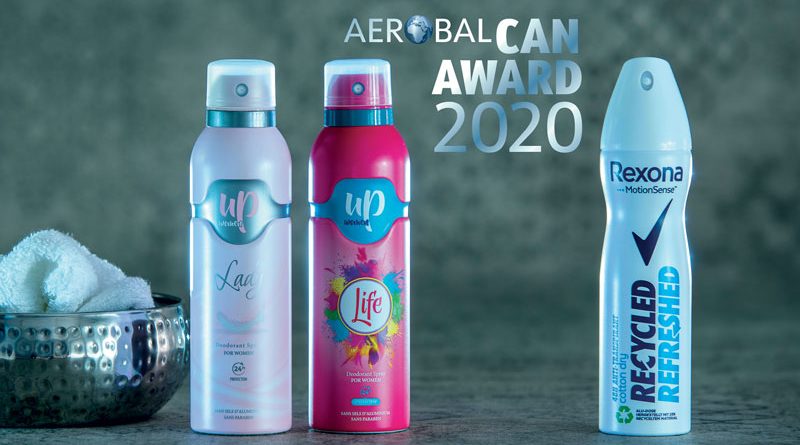World Aluminium Aerosol Can Award 2020
The competition a reliable trend barometer for future developments in the international aerosol can market. Production of aluminium aerosol cans only decreased slightly in the first half of 2020 despite the Covid-19 crisis

AEROBAL, the International Organisation of Aluminium Aerosol Container Manufacturers, organised its competition for the best aluminium aerosol cans once again this year. The jury awarded the World Aluminium Aerosol Can Award 2020 to cans produced by the Turkish manufacturer ARYUM, designed and produced for a client from Tunisia. ARYUM was asked to develop a distinctive and appealing design for the 200-ml cans for the exclusive deodorant line ‘Up’, comprising four different fragrances. An innovative 360° embossing technique combined with an oriented printing technology is used to create the cans’ unique shape and look and gives them the desired unique character as soon as one sees them. Not only does the special 360° technology produce the impressive all-round shape, it is also possible to achieve 360° printing of the can in an impressive quality. As a result, the cans sometimes appear in vibrant, powerful and almost exploding colours, and sometimes they appear elegant, with finely coordinated shades with filigree patterns and gradations. The logo is located in an exposed position on the flatter surface of the can and shaping the can around its complete circumference also offers excellent protection against product counterfeiting and brand piracy. For the first time this year, the international jury also chose a winner in a newly created category: Sustainability. The first winner was the aluminium aerosol can for the Rexona Recycled Refreshed 24-hour antiperspirant from Unilever, produced by the German manufacturer Tubex. The can was produced using a new, patented alloy and contains 25% real post-consumer recyclate aluminium (PCR). Thanks to the new alloy and a barely discernible modification of the can’s shape, the can is now 14% lighter than its predecessor. A powder coating is used to protect the inside of the can. In addition, only 50% of the can’s internal surface is lacquered. The use of powder coating offers ecological benefits: it avoids CO2 when it is applied and any overspray is reused.

Aluminium aerosol cans and the Covid crisis
AEROBA recorded a relatively moderate decline in the global production of aluminium cans of almost two percent for the first half of 2020 despite the Coronavirus pandemic. Compared to most other industrial sectors, the industry is still doing relatively well in a global comparison.
That is why Gregor Spengler, Secretary General of AEROBAL, is quite satisfied with the half-year results of the member companies: “The very moderate minus represents a rather good result in view of the highly insecure markets with extremely cautious customers and consumers. Under the impression of the corona-related lockdowns and restrictions in public life with all their consequences for consumption we would have expected worse results. Especially in this crisis, our member companies have remarkably proven their convincing performance and delivery capabilities under extremely difficult conditions.” With regard to the regional sales markets, the markets in Asia and Oceania were particularly weak in a global comparison in the first half of 2020. In contrast, the markets in Europe only declined slightly. Demand in North and South America remained largely stable, while the Middle East even posted slight gains. A reliable forecast of the further development of the global markets for aluminium aerosol cans is extremely difficult given the still rampant corona pandemic. Most brand owners find it difficult to make reliable forecasts due to the challenging international market environment. Most of the can manufacturers and their customers, however, expect a further decline in demand in the second half of the year.

